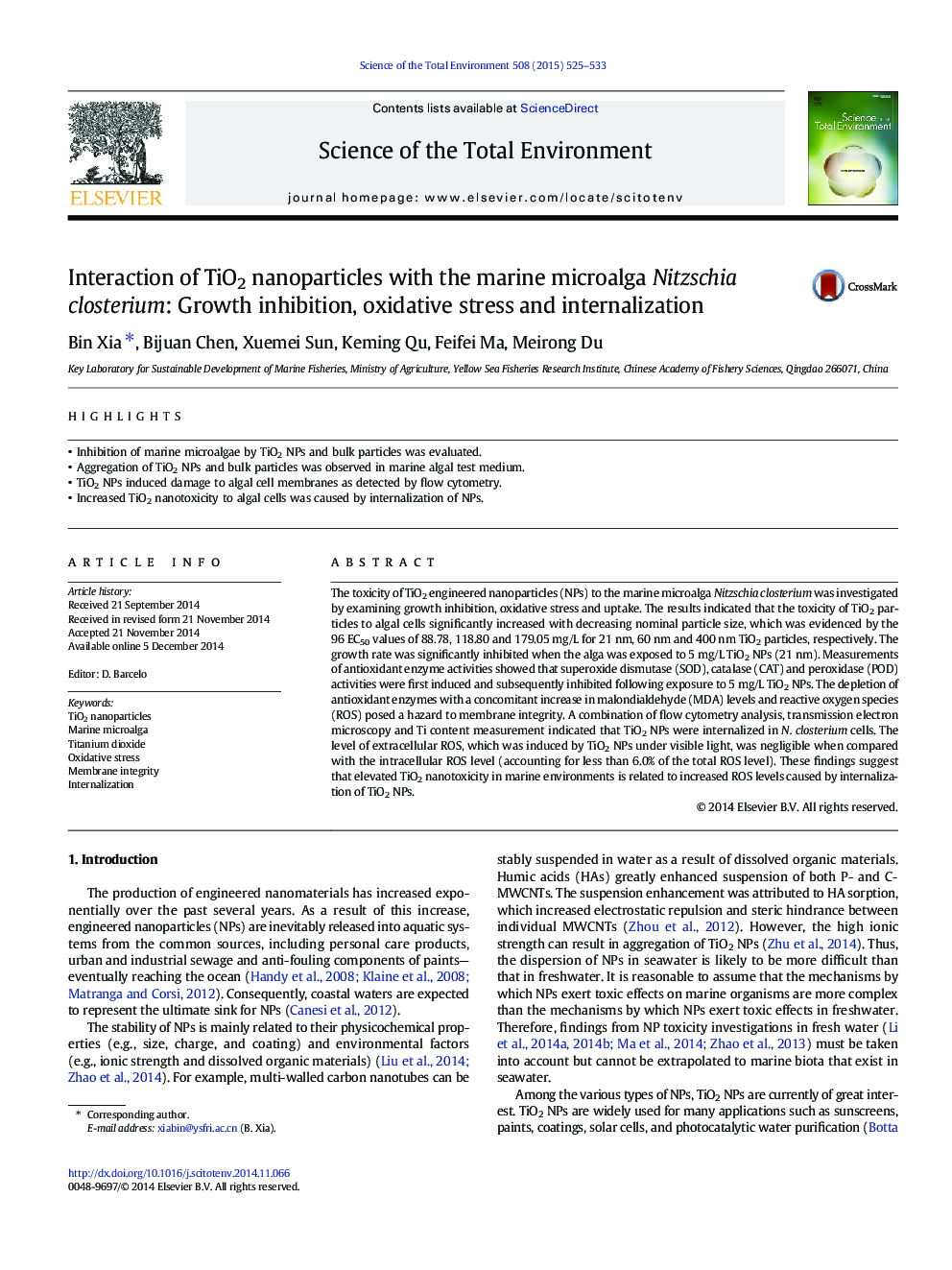| کد مقاله | کد نشریه | سال انتشار | مقاله انگلیسی | نسخه تمام متن |
|---|---|---|---|---|
| 6327952 | 1619768 | 2015 | 9 صفحه PDF | دانلود رایگان |

- Inhibition of marine microalgae by TiO2 NPs and bulk particles was evaluated.
- Aggregation of TiO2 NPs and bulk particles was observed in marine algal test medium.
- TiO2 NPs induced damage to algal cell membranes as detected by flow cytometry.
- Increased TiO2 nanotoxicity to algal cells was caused by internalization of NPs.
The toxicity of TiO2 engineered nanoparticles (NPs) to the marine microalga Nitzschia closterium was investigated by examining growth inhibition, oxidative stress and uptake. The results indicated that the toxicity of TiO2 particles to algal cells significantly increased with decreasing nominal particle size, which was evidenced by the 96 EC50 values of 88.78, 118.80 and 179.05Â mg/L for 21Â nm, 60Â nm and 400Â nm TiO2 particles, respectively. The growth rate was significantly inhibited when the alga was exposed to 5Â mg/L TiO2 NPs (21Â nm). Measurements of antioxidant enzyme activities showed that superoxide dismutase (SOD), catalase (CAT) and peroxidase (POD) activities were first induced and subsequently inhibited following exposure to 5Â mg/L TiO2 NPs. The depletion of antioxidant enzymes with a concomitant increase in malondialdehyde (MDA) levels and reactive oxygen species (ROS) posed a hazard to membrane integrity. A combination of flow cytometry analysis, transmission electron microscopy and Ti content measurement indicated that TiO2 NPs were internalized in N. closterium cells. The level of extracellular ROS, which was induced by TiO2 NPs under visible light, was negligible when compared with the intracellular ROS level (accounting for less than 6.0% of the total ROS level). These findings suggest that elevated TiO2 nanotoxicity in marine environments is related to increased ROS levels caused by internalization of TiO2 NPs.
Journal: Science of The Total Environment - Volume 508, 1 March 2015, Pages 525-533